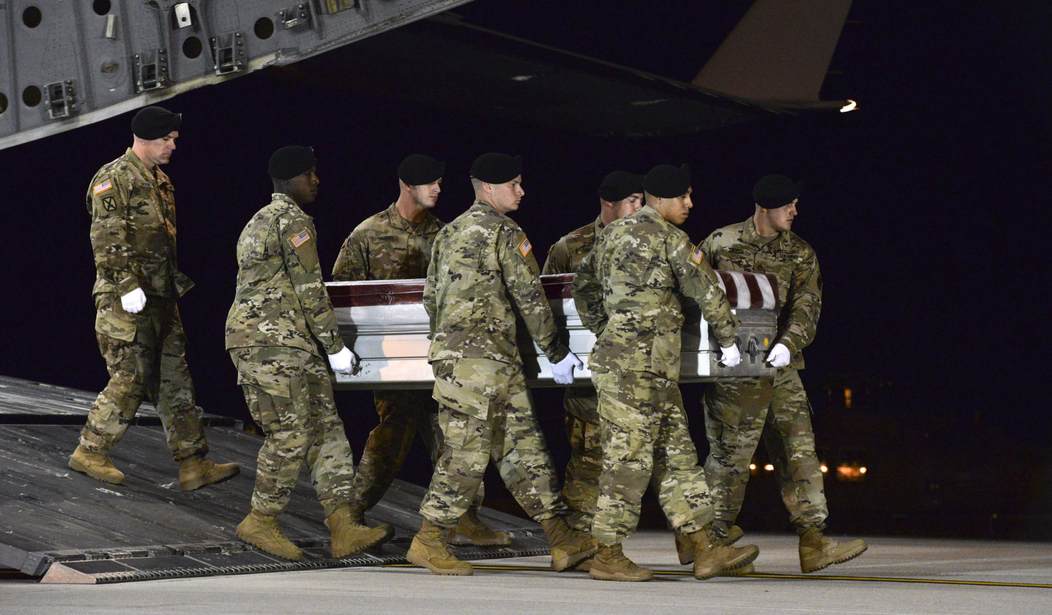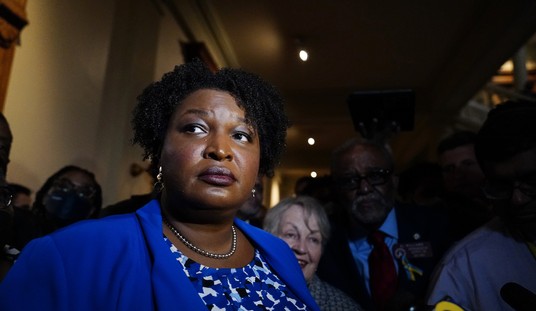WASHINGTON — The Army’s chief of staff said he expected joint operations between U.S. special forces and local forces like the Nigerien army to increase after four U.S. soldiers were killed in an ambush in the West African country last week.
Staff Sgt. Bryan C. Black, 35, of Puyallup, Wash., Staff Sgt. Jeremiah W. Johnson, 39, of Springboro, Ohio, and Staff Sgt. Dustin M. Wright, 29, of Lyons, Ga., were killed Oct. 4 as three of a dozen U.S. soldiers accompanying a few dozen Nigerien soldiers on a routine patrol.
Two days later, the body of another American who had been listed as missing after the attack was recovered by Nigerien forces: Sgt. La David T. Johnson, 25, of Miami Gardens, Fla.
Joint Staff Director Marine Corps Lt. Gen. Kenneth F. McKenzie told Pentagon reporters Thursday that the soldiers were participating in “a pretty broad mission with the government of Niger in order to increase their capability to stand alone and to prosecute violent extremists in the region.”
Forces loyal to both al-Qaeda and ISIS (Islamic State in the Greater Sahara, or ISGS) operate in the region and have attacked Niger in the recent past. The Group for the Support of Islam and Muslims, an umbrella coalition established in March of al-Qaeda loyal groups in Mali including the local branch of al-Qaeda in the Islamic Maghreb, was seen as a shrewd alliance that cemented al-Qaeda as the dominant jihadist force in the region.
In March, Niger declared a state of emergency due to the Mali border threat; this was extended last month. Niger announced offensive operations in Tillabéri this June.
“I think clearly there’s risk for our forces in Niger. Anytime we deploy full forces globally, we will look very hard at the enablers that need to be in place in order to provide security for them,” McKenzie said. “And that ranges from the ability to pull them out if they’re injured, to the ability to reinforce them at the point of a fight if they need reinforcement. We look at all those things, and evaluate on a continual basis.”
“I’m not gonna go in any further detail on what’s actually happening inside Niger, because we have ongoing partner operations occurring now,” he added.
Army Col. Mark R. Cheadle told reporters that the mission “was meant to establish relations with the local leaders and the threat at the time was deemed to be unlikely.”
“But our allies the French were very quick to respond with their assets immediately upon notification that it was needed,” he said.
President Trump has not tweeted about the four slain Green Berets. “Obviously any time one of the members of our great military are injured, wounded or killed in action, that is certainly something that we take very seriously,” White House press secretary Sarah Huckabee Sanders told reporters Friday. “Our thoughts and prayers are with those individuals. We’re continuing to review and look into this. And as we have more details, we’ll certainly let you guys know.”
At the Association of the United States Army’s annual meeting in D.C. on Monday, Army Chief of Staff Gen. Mark Milley said the U.S. military continues “training, advising and assisting indigenous armies all over the world,” and “I anticipate and expect that’ll increase, not decrease, in years to come.”
“It is a dangerous mission, TAA missions around the world,” he said. “It depends on where you are at.”
A new Army unit of security force assistance brigades, announced in February, is modeled after infantry and armored brigade combat teams and will “consist of approximately 500 senior officers and noncommissioned officers who will have the proven expertise to train and advise foreign security forces from small units up through ministerial levels,” the Army said. “The new units are designed to enhance the readiness of the Army by reducing demand for existing BCTs to conduct security force assistance operations, thereby preserving BCT readiness for full spectrum contingency operations.”
A Military Advisor Training Academy at Fort Benning will give “foundational training” to the six SFABs.
Milley told the conference that the new brigades should go into operation in the next two years, and they “will look and act, in many ways, and be trained similar to Special Forces, but they are not Special Forces.”









Join the conversation as a VIP Member